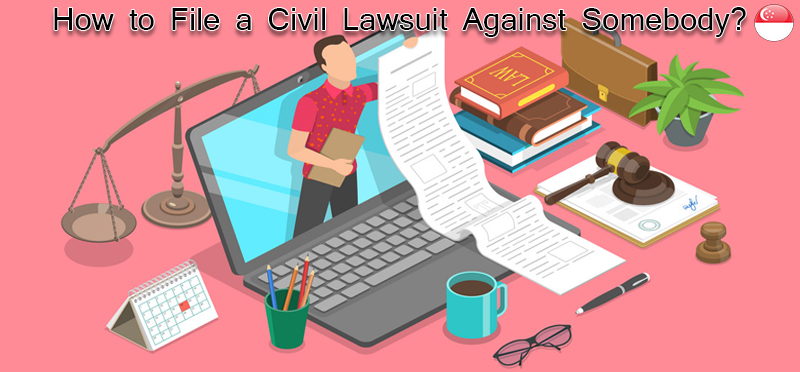Filing a lawsuit may seem daunting, but it can be a necessary step in gaining justice and seeking compensation after experiencing harm. Whether you have legal representation or not, understanding the process of filing a lawsuit is critical. Let's explore how to file a lawsuit, including when to file, how to prepare, and what to expect during the process.
Understanding When to File a Lawsuit
The decision to file a lawsuit is not one to be taken lightly. Before filing, it is important to assess the level of harm and evaluate whether legal action is the best course of action. Generally, lawsuits are filed in response to a breach of contract or legal dispute between two parties. They can also be filed for personal injury or wrongful death claims.
If you are unsure whether to pursue a lawsuit, seeking the advice of a legal professional is recommended. A lawyer can help determine the strength of your case, assess damages, and advise on the best course of action for your situation.
Preparing to File a Lawsuit
Once you have decided to file a lawsuit, there are several steps you should take to prepare. First, it is important to gather and organize all relevant evidence and documentation. This can include medical records, witness statements, contracts, and any other relevant information related to your case.
It is also important to determine the proper jurisdiction in which to file your lawsuit. Jurisdiction refers to the geographic area or legal system in which your case will be heard. This will depend on the nature of your case and the parties involved.
In addition, it is important to identify the proper defendant or defendants in your lawsuit. This is the person or organization that you are suing. If there are multiple parties involved, each will need to be properly identified and included in the lawsuit.
Filing Your Lawsuit
After completing the necessary preparation, it is time to formally file your lawsuit. This involves submitting a complaint to the court outlining the legal claims you are making and the evidence you have to support them. Once the complaint is filed, the defendant or defendants will be served with a copy and given an opportunity to respond.
If you are represented by a lawyer, they will handle the filing and service of documents on your behalf. If you are filing without legal representation, it is important to familiarize yourself with the rules of the court and follow the proper procedures to ensure your case is heard.
Navigating the Legal Process
Once the lawsuit is filed, the legal process begins. This can involve various stages, including discovery, motion practice, and potentially a trial. Each phase involves its own set of rules and procedures, and it is important to have an understanding of what to expect throughout the process.
During discovery, both sides will gather evidence and information related to the case. This can involve depositions, requests for documents, and other methods of gathering evidence. Motion practice involves motions made to the court by either side requesting a certain action be taken, such as dismissing the case or requesting summary judgment.
If the case proceeds to trial, it will be heard by a judge or jury, depending on the nature of the case. At trial, each side will present evidence and arguments in support of their case, and the judge or jury will ultimately decide the outcome.
Conclusion
Filing a lawsuit can be a complex and emotional process. However, with the right preparation and understanding of the legal process, it is possible to navigate the system and seek justice. By assessing the strength of your case, gathering necessary evidence, and following proper procedures, you can increase your chances of a successful outcome.

Filing a Civil Lawsuit Against Somebody
If you have experienced harm at the hands of another person or organization, you may be considering filing a civil lawsuit. Civil lawsuits differ from criminal lawsuits in that they do not involve criminal charges or imprisonment. Instead, they seek monetary compensation for damages or other remedies.
To file a civil lawsuit, you will need to identify the proper defendant and file a complaint outlining the legal claims you are making. The defendant will be served with a copy and given an opportunity to respond. From there, the legal process will proceed, including discovery, motion practice, and potentially a trial.

Deciding When to File a Lawsuit
Deciding when to file a lawsuit is a crucial step in seeking justice and compensation. It is important to consider the nature of your claim, the strength of your case, and the potential outcomes before deciding to file.
If you are unsure whether to proceed with a lawsuit, seeking the advice of a legal professional can be helpful. A lawyer can assess your case and advise on the best course of action.

Filing a Lawsuit with Laws101.com
Laws101.com provides a comprehensive guide on how to file a lawsuit. Their resource includes a step-by-step outline of the legal process, including how to file a complaint, conduct discovery, and navigate the court system.
By following the guidelines provided by Laws101.com, you can increase your chances of a successful outcome and seek the justice and compensation you deserve.

